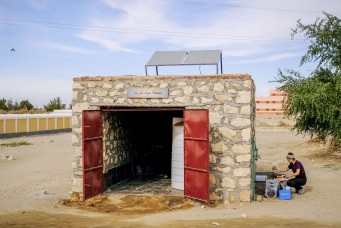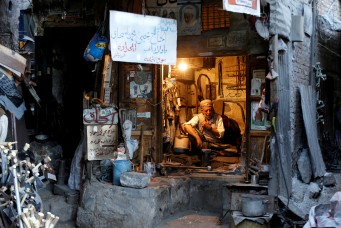Chasing Chaos
The not-so-humane aspect of humanitarian aid.
Humanitarian aid is an industry. It is tempting to think it is managed like a business, but unfortunately there is a significant difference. The consumers—in this case, the beneficiaries of the aid—have little or no say in holding the aid providers accountable. Consumers of commercial products and services in a free market must be appeased—their demands are explored and met—or else the business will not survive. But in the business of humanitarian aid, services and products are regularly delivered without consulting the aid recipients or affected community members; consumers of the aid cannot ask for changes in policy.
Aid literature abounds with suggestions to shift the paradigm, for example recommending consultations with stakeholders and community engagement. But when disaster strikes and emergency aid is quickly channeled to a crisis zone, very little of this talk is heeded. Aid agencies responsible for implementation are accountable mainly to donors and funding organizations, rather than to the aid beneficiaries in the affected areas.
In Chasing Chaos: My Decade In and Out of Humanitarian Aid Jessica Alexander captures these tensions. In a compelling piece of storytelling, she teases out the angels and demons of the humanitarian aid industry. Alexander takes the reader on a fast-paced and painful tour of the globe’s calamities that lives up to the book’s title. She travels from one crisis area to another, sharing detailed experiences from the Darfur war, the Rwandan genocide, the child warriors of Sierra Leone, the tsunami in Indonesia, and the earthquake in Haiti. Along the way, she presents insights that have implications for good governance.
The author’s long-view of development aid, for example, is valuable because the public’s attention span for major crises is short. Supplies are poured into areas that the media covers intensively—what scholars call the “CNN Effect.” Soon thereafter the global attention wanes away, or moves to other more pressing or sexier crisis zones. Already initiated projects peter out. Despite continuous efforts by development partners, donor-funded projects are rarely sustainable.
Alexander offers multiple examples of the negative effects of aid, whether it is too much assistance during a short period of time or the dire effects on communities when aid disappears. In Indonesia in 2005, Alexander describes the over-supply of aid because of the media’s constant coverage of a devastating tsunami. What followed was aggressive competition between aid agencies to place signs and logos on their projects—and mark their territories. NGOs needed to show tangible results to their donors, while the actual needs of those affected took second place. Consider the futility of thousands of tons of supplies sent from every corner of the world: medication with Japanese or French pamphlets that cannot be deciphered by the community workers; or ripped jeans and high-heeled shoes to a population that mostly wears kebayas.
Volunteers can be equally useless. In Haiti, after the 2010 earthquake that killed about 180,000 Haitians and displaced more than 1.5 million people, the author describes the “voluntourists” who came to help out for a week, or during spring break, and have their pictures taken with the babies—just to feel good about it. These parachutists do more harm than good. The author complains that humanitarian aid staffers do not necessarily have altruistic motives. She notes how many are in it because of the career opportunities, job perks, danger pay—all the while living in air-conditioned quarters and partying all night.
To further illustrate the unsustainability of donor projects, Alexander gives examples of a cholera treatment center in Haiti. Despite the continuous threat of the disease, funds were discontinued and the center was forced to shut down. Donors were then attracted to new crisis areas, such as Syria and Yemen. Although healthcare should be a national government’s responsibility, in crisis areas governments are not ready to take over in a short time. Donor assistance is a temporary treatment of the symptoms but not of the underlying ailment.
Laila El Baradei is professor of public administration and associate dean for graduate studies and research in the School of Global Affairs and Public Policy at the American University in Cairo. She previously served on the faculty of Cairo University. She has been a contributing author to the Egypt Human Development Report in 2004, 2008, and 2010, the Millennium Development Goals Second Country Report for Egypt in 2004, and the World Bank Country Environmental Analysis for Egypt in 2005. On Twitter: @Egyptianwoman.





